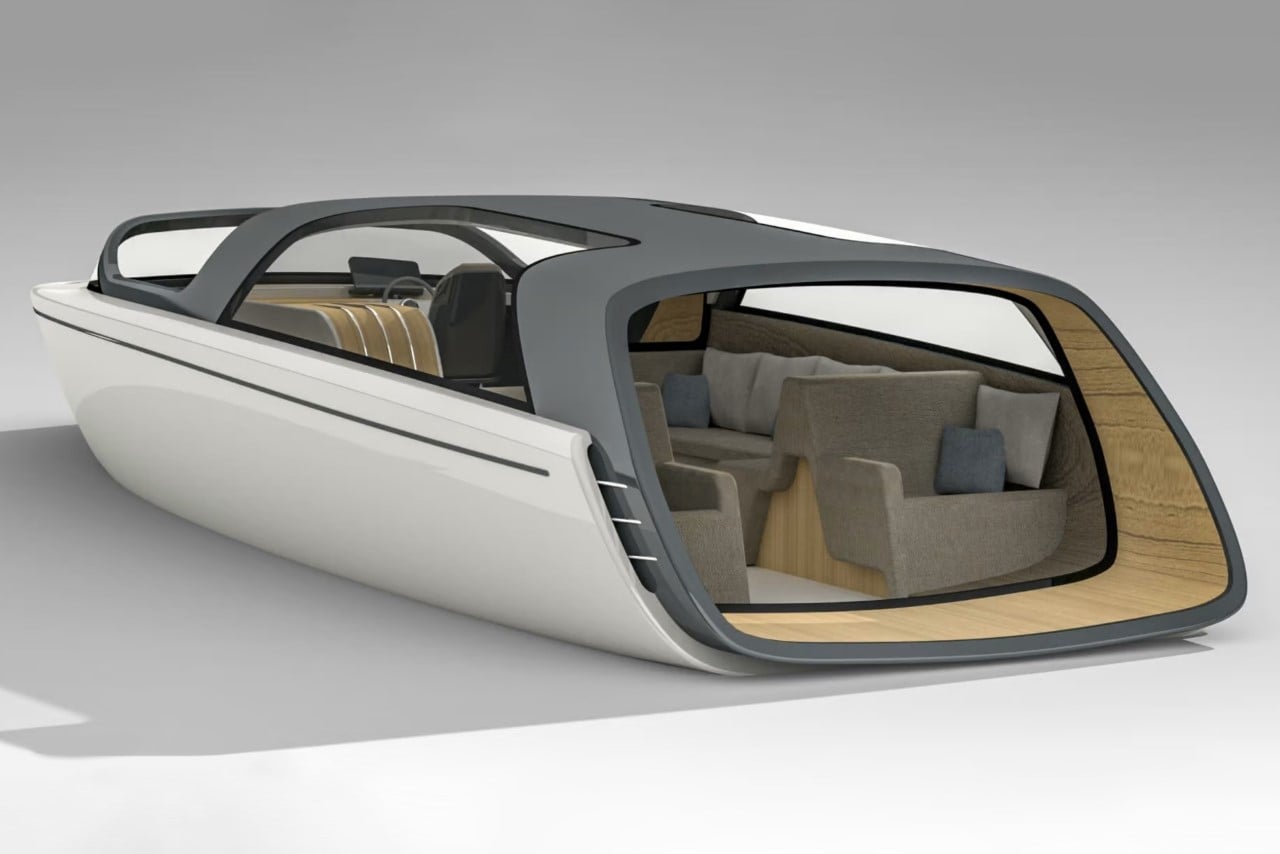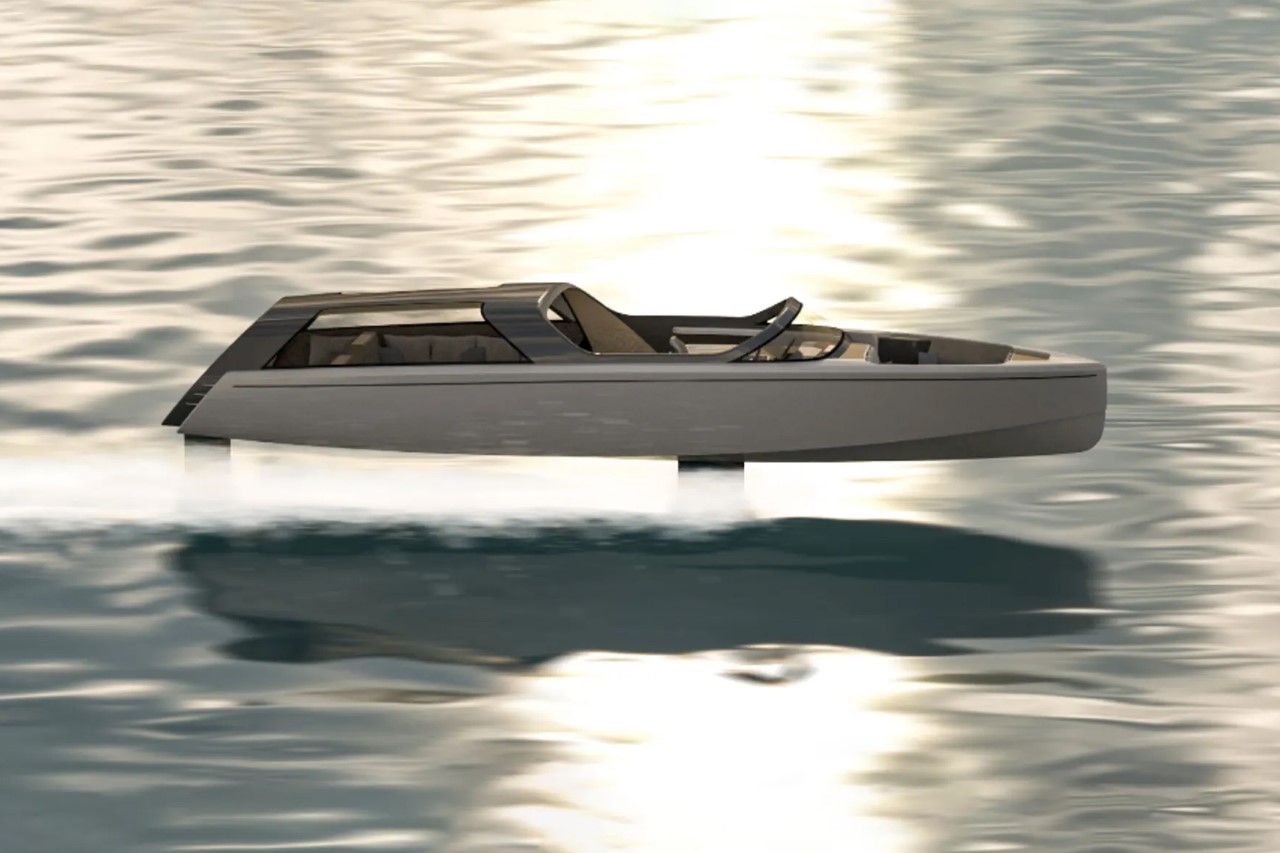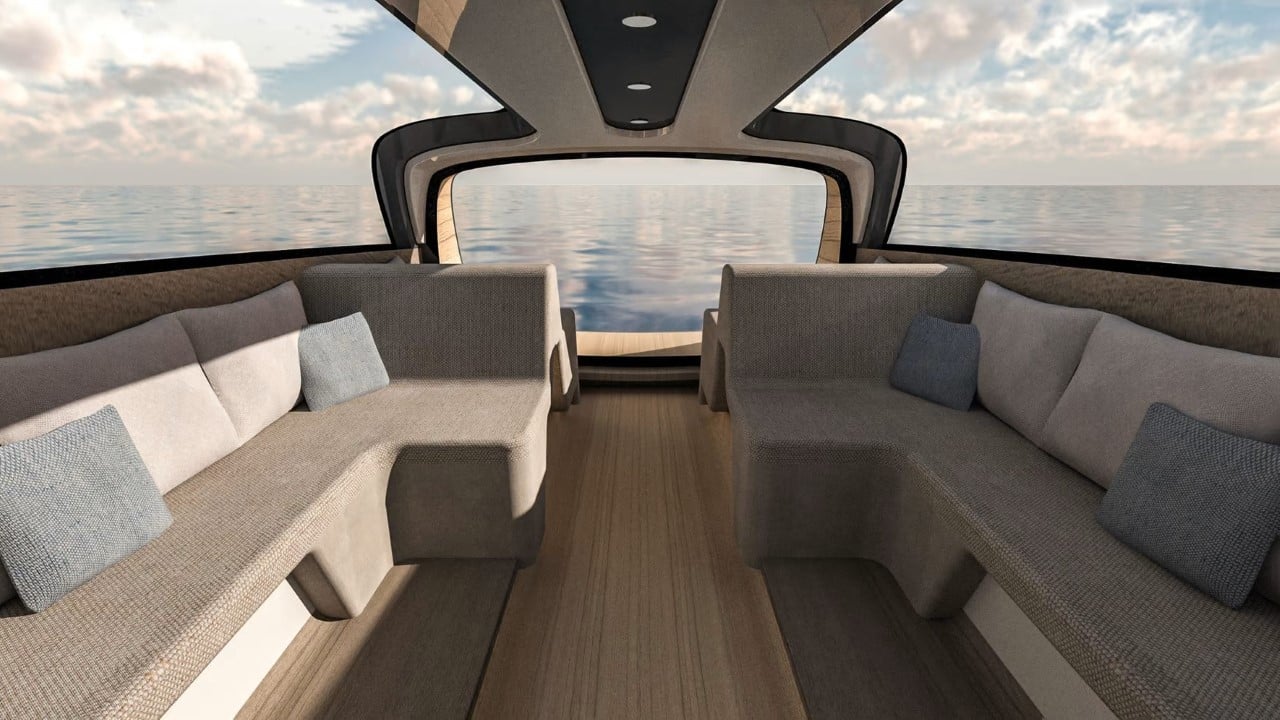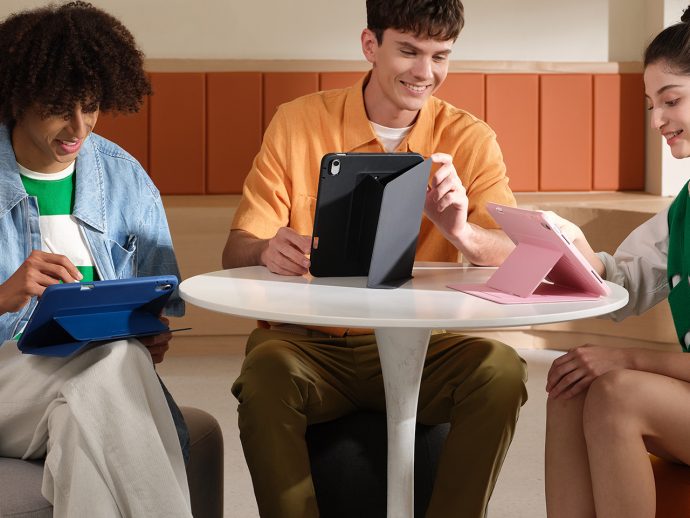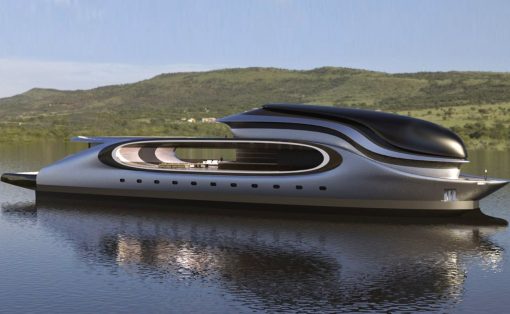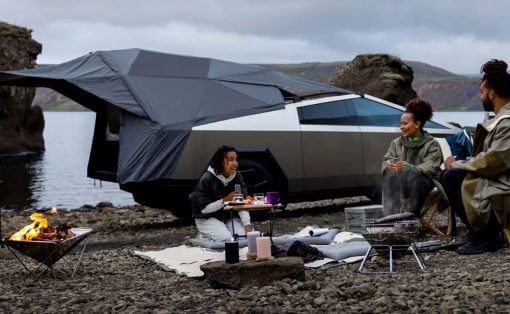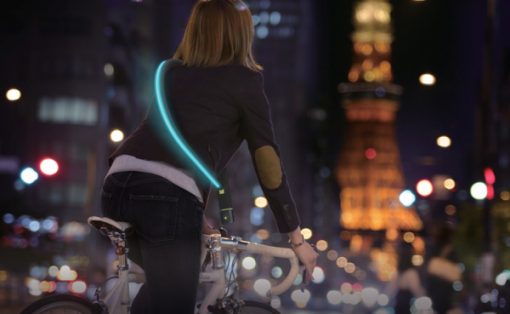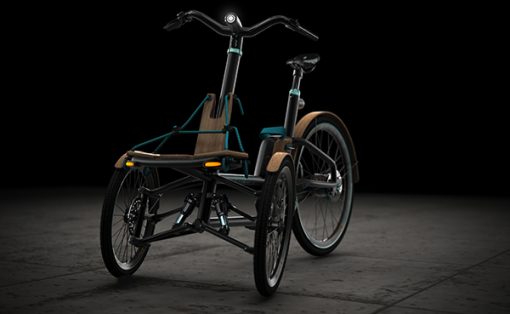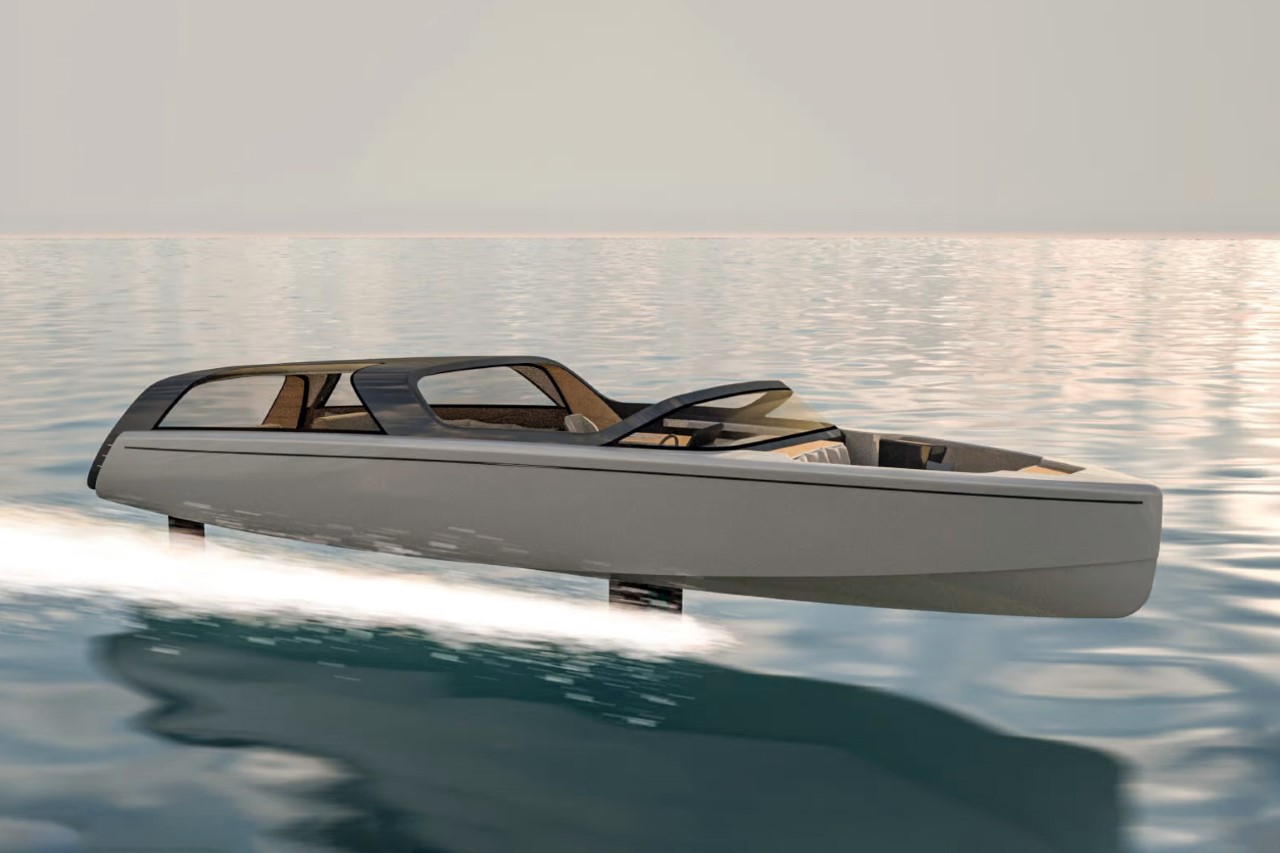
By floating above the water instead of resting on it, the Alte Volare greatly reduces drag, giving you a yacht that can glide through even rough tides without breaking speed!
The Alte Volare is what they call a tender, or a boat that carries passengers (and sometimes cargo) to yachts or ships positioned off the coast. Designed by the superyacht specialists at Cockswell, the Alte Volare is the result of a years-long technical study that pushes the boundaries of what’s possible “when it comes to fusing advanced engineering with intelligent design.” The elongated ‘limousine tender’ features a combination of an electric powertrain, retractable hydrofoils, and a sleek fuselage-like hull, and was unveiled as a technical study this month at the Monaco Yacht Show.
Designer: Cockwells
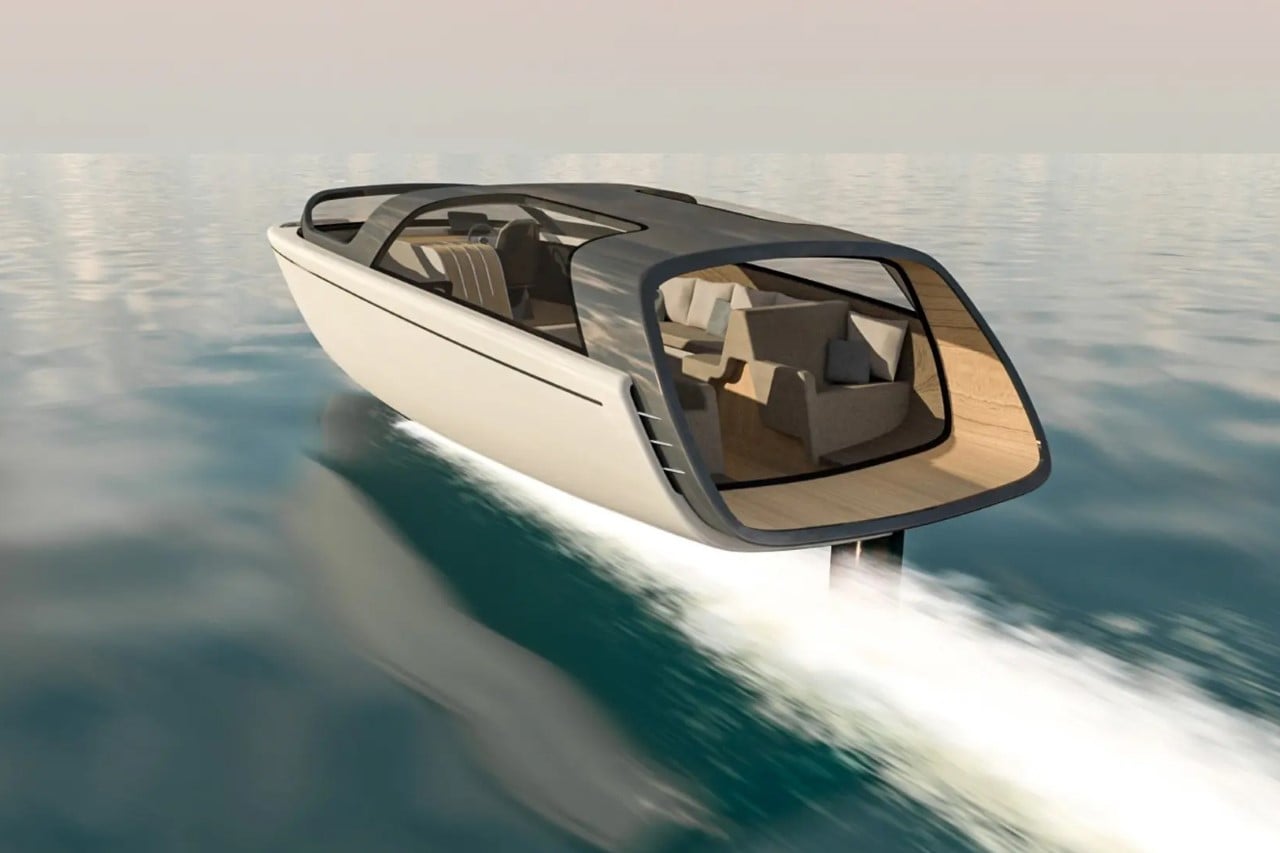
The Alte Volare’s USP is its ability to hover over water, instead of on it. Its design features an incredibly aerodynamic hull with a razor-sharp bow that slices through both water and air. The e-tender features two retractable foils, one on the front with an electric powertrain built into it that propels the boat, and a rear foil that incorporates the control surfaces for steering, braking, etc.
If you’ve ever tried running underwater, you’d know that it’s much more difficult than running on land (or basically through air). Water offers more resistance, leading to higher drag that slows boats down, even though boats are just partially underwater. With a hydrofoil, however, the boat’s hull sits above water instead, and that drag is therefore greatly reduced. It also means that waves don’t slow the hydrofoil down, and the Alte Volare uses that to its advantage, slicing through water and air like a sniper’s bullet at speeds of up to 40 knots (74 km/h).
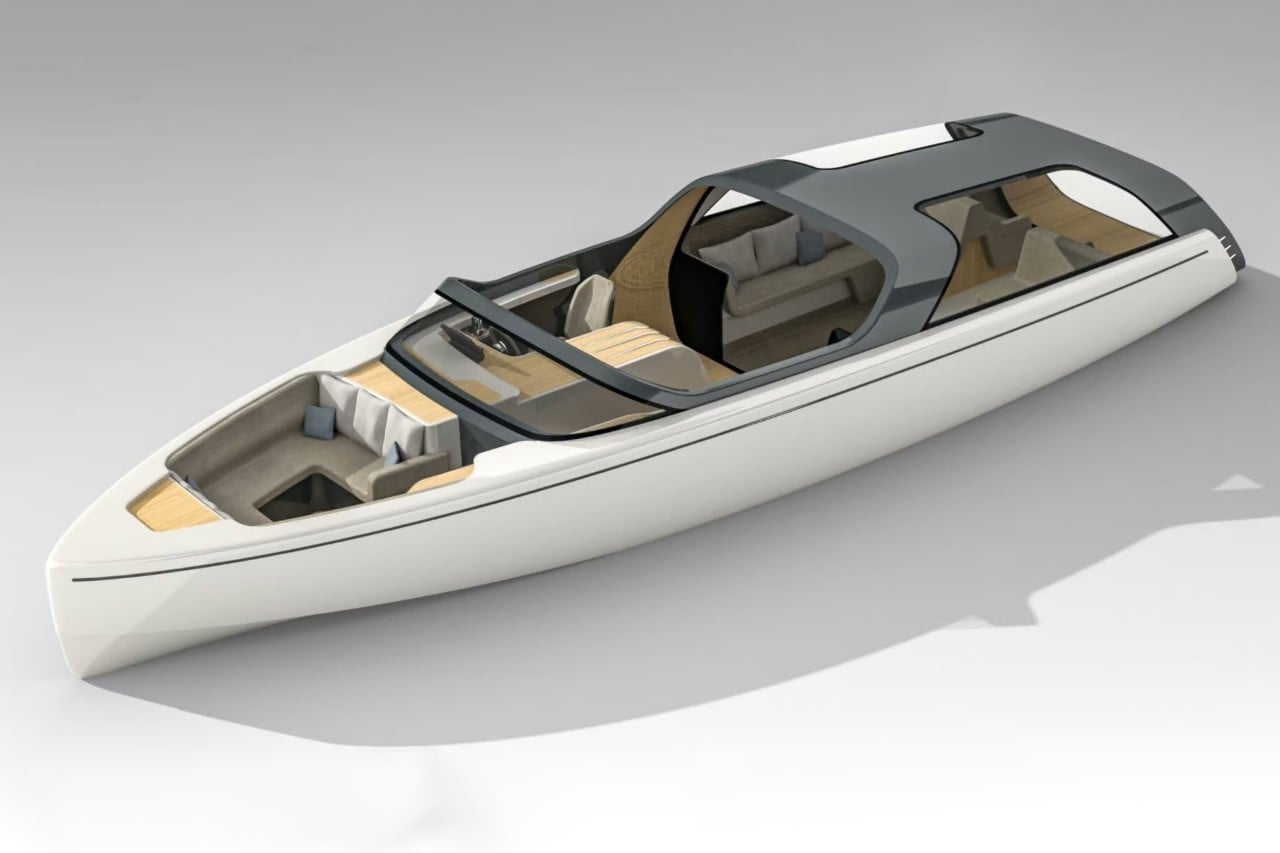

The boat seats as many as 10, along with a 2-person crew, and features seating areas at the front (or the bow), right behind the cockpit, and even at the stern (or the rear). No matter where you’re seated, occupants are treated with a stunning view of what’s around them, thanks to a predominantly open structure. The seating area behind the cockpit is covered with large glass panels that provide a panoramic view too (which people can retreat to if it starts raining).
